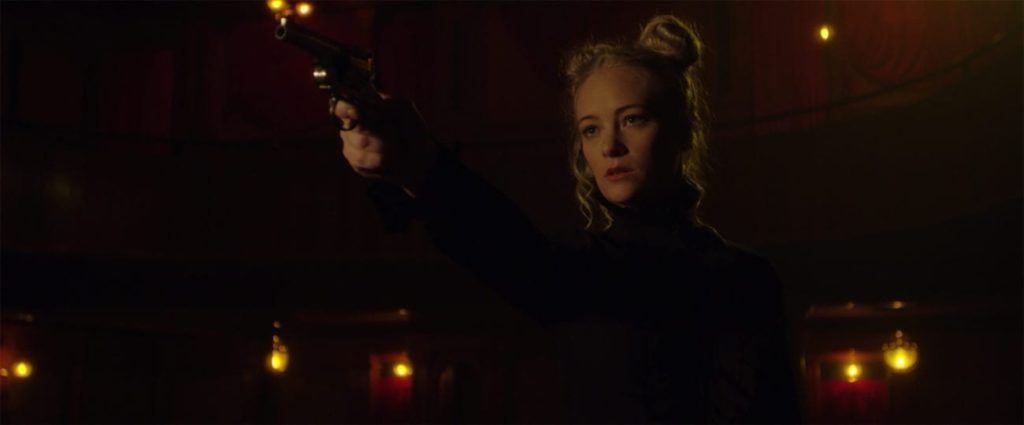The Riot Act Is a Gorgeous Film Plagued by a Plodding Script
Written by Ian Thomas Malone, Posted in Blog, Movie Reviews, Pop Culture
Period pieces have an inherent additional layer of complexity to their presentation that films with contemporary settings don’t need to worry about. Set in 1903, Devon Parks The Riot Act is a thriller that does an excellent job of making the audience feel as though they’re actually in Van Buren, Arkansas, back in a time when a traveling vaudeville act would be the pinnacle of one’s entertainment options. The film makes extensive use of Van Buren’s historic buildings, giving it a far more authentic feel than many period pieces, let alone those with indie budgets.
The beautiful locations give the eyes plenty to look at throughout each scene. Such scenery is often more entertaining to watch than the characters. Period pieces may have additional considerations to look out for, but films set in the past still need narratives that work for their audience living in the present.
The Riot Act’s script is a meandering slog, a product of the film’s unclear narrative focus. Dr. Willard Pearrow (Brett Cullen) takes umbrage with his daughter’s lover (Brace Harris), shooting him before he can run off and live happily ever after with Allye (Lauren Sweetster). Two years later, a traveling vaudeville act is booked in his opera house, haunted by a mysterious “ghost” seeking revenge on the powerful doctor.
While the mystery surrounding Dr. Pearrow’s relationship with Allye could’ve carried the narrative, the film burdened itself with a few unnecessary subplots. In keeping with its 1903 Arkansan setting, the townsfolk are hardly receptive to diversity, taking umbrage with the presence of African American member of the troupe. The film ostensibly tries to aim for historical accuracy in portraying this drama but lingers too long on a plot point that feels particularly stale to a present-day audience.
Making matters worse is the films 101-minute runtime, which stretches its various plot strands quite thin by the end. A more streamlined approach to the narrative would’ve done the film wonders, while allowing it to sidestep the social commentary that’s not very interesting to begin with. The Riot Act is too long for its own good, a script that rarely seems sure of what it’s supposed to be doing.
There is a lot to like in many of the scenes, often shot like a stage play. Parks maintains a minimalist focus, using sparse lighting and stage direction to give his actors a chance to shine. The play-like dynamic works well for the period setting, especially for an indie.
The performances are a bit of a mixed bag. Cullen and Sweetster are mostly good, but many of the scenes are brought down by actors speaking their lines too quickly or sounding muffled in the process. More than a few scenes look like they should have been reshot. There are obvious limitations put on indie films, but clumsy takes drag down the otherwise excellent production values.
The Riot Act has a lot to admire as an indie period piece, but the film plays out like a rough cut in desperate need of additional editing. The locations are beautiful and the acting is mostly good, but the script is too unsure of itself to make for a worthwhile experience. Parks’ debut shows plenty of promise, but the execution just isn’t quite there.











